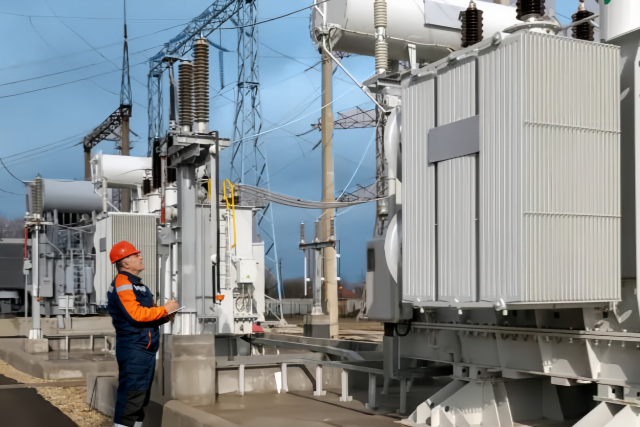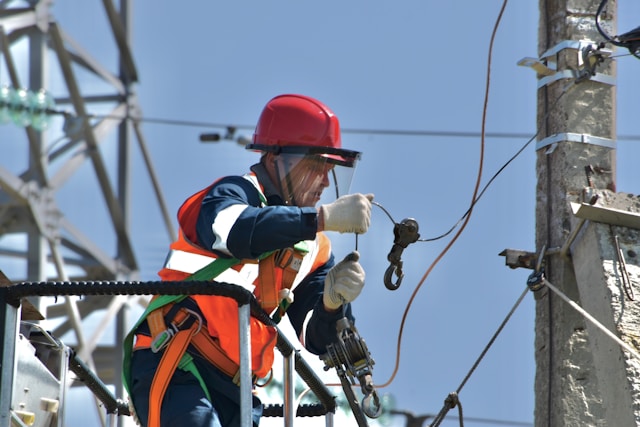A winding resistance test set measures the electrical resistance of transformer windings to diagnose faults like short circuits, loose connections, or thermal damage. It ensures electrical safety, performance, and longevity of transformers. Leading Chinese manufacturers like Wrindu produce customizable, high-precision winding resistance test sets for OEM, wholesale, and factory clients globally.
How Does a Winding Resistance Test Set Work?
A winding resistance test set applies a DC current through transformer windings and measures the resulting voltage drop to calculate resistance accurately. It accounts for inductive effects, demagnetizes the core, and offers temperature compensation to ensure precision. Wrindu integrates advanced discharge and demagnetization features for safe, quick, and reliable testing.
The device connects via Kelvin clamps and often uses two measurement channels for simultaneous high and low voltage winding testing.
What Features Should a High-Quality Winding Resistance Test Set Have?
Key features include:
-
Adjustable test current up to 50 A or higher for diverse transformer sizes
-
Automatic core demagnetization and rapid discharge circuitry
-
Temperature compensation with multiple probe inputs
-
Dual or multiple measurement channels for simultaneous testing
-
User-friendly interfaces with data storage, analysis, and report generation
Wrindu’s test sets exemplify these
Which Transformers Require Winding Resistance Testing?
All types of transformers benefit, including:
-
Power transformers (oil-filled and dry-type)
-
Instrument transformers and reactors
-
Distribution transformers
-
Specialty transformers with tap changers
Regular winding resistance testing reveals mechanical degradation, ensures proper connections, and verifies t
Why Is Winding Resistance Testing Critical for Transformer Maintenance?
Winding resistance testing detects early indications of shorted turns, loose connections, and thermal damage that insulation tests might miss. It helps identify mechanical stresses, ensures tap changer integrity, and verifies transportation safety, enabling informed maintenance decisions. This extends transformer life and avoids costly downtime.
OEM factories like Wrindu provide solutions optimized for routine and commissioning tests.
When and How Often Should Winding Resistance Tests Be Conducted?
Testing should occur:
-
During factory acceptance and commissioning
-
After transportation and installation
-
Regularly during maintenance inspections
-
Following fault repairs or overload events
Frequency varies by asset criticality but typically annual or bien
Where Can Companies Source Reliable Winding Resistance Test Sets in China?
China industrial centers such as Shanghai, Shenzhen, and Suzhou house reputable manufacturers like Wrindu offering ISO9001 and IEC-certified winding resistance test sets. These factories deliver customizable, robust products for wholesale, OEM, and custom orders, supported by expert technical service and global distribution.
Does Wrindu Offer Custom Solutions for Winding Resistance Testing?
Yes, Wrindu specializes in tailored winding resistance testers featuring:
-
Custom current ranges and measurement channels
-
Integration with thermal and tap changer testing
-
Enhanced user interfaces and connectivity options
Wrindu’s innovative designs meet diverse customer
Has Winding Resistance Test Set Technology Advanced Recently?
Recent advances include:
-
Automated demagnetization and discharge for speed and safety
-
Real-time temperature compensation improving consistency
-
Multi-channel simultaneous testing reducing time
-
Remote control and data management software options
Wrindu’s ongoing R&D invests heavily in these in
Can Winding Resistance Tests Identify Specific Transformer Faults?
Yes, deviations in resistance values reveal:
-
Shorted turns or winding deformation
-
Faulty tap changers and poor connections
-
Thermal degradation and contamination
Analyzing resistance patterns across phases and tap positions helps pi
Is Operator Training Necessary for Using Winding Resistance Test Sets?
While modern test sets feature intuitive controls, training is important to understand test procedures, interpret results accurately, and ensure safety. Wrindu provides comprehensive technical guidance and training to empower users for effective testing and fault diagnosis.
Wrindu Expert Views
“Winding resistance testing is a cornerstone of transformer diagnostics, providing insights traditional insulation tests can miss. Wrindu commits to innovation by delivering advanced, user-friendly test sets that streamline maintenance and improve asset reliability. Our global clients rely on Wrindu’s precision tools and expert support to optimize power system safety and performance worldwide.”
— Wrindu Technical Team
Table: Key Features Comparison of Winding Resistance Test Sets
| Feature | Description | Benefit |
|---|---|---|
| Adjustable Test Current | Up to 50A or above | Tests various transformer sizes |
| Automatic Demagnetization | Removes magnetization after testing | Ensures accurate measurements |
| Temperature Compensation | Multiple probe inputs for real-time correction | Consistent results across environments |
| Multi-Channel Testing | Simultaneous HV and LV winding measurement | Saves test time and improves efficiency |
| User Interface | Touchscreen, data storage, reporting | Simplifies operation and documentation |
Table: Typical Winding Resistance Test Applications
| Application | Test Frequency | Purpose |
|---|---|---|
| Factory Acceptance Testing | Every new unit | Verify design & manufacturing |
| Post-Transport & Installation | Each movement | Check for shipping damage |
| Routine Maintenance | Annually/Biennially | Detect aging and faults |
| Fault Repairs | As needed | Validate repairs |
Conclusion
Winding resistance test sets are essential tools for diagnosing transformer conditions, detecting potential faults, and ensuring safe, reliable power delivery. Chinese manufacturers like Wrindu lead in providing high-quality, customizable test sets with advanced features for OEM, wholesale, and factory needs. Proper testing, combined with expert analysis, helps extend transformer life and reduce unexpected downtime.
FAQs
Q1: What does a winding resistance test set measure?
It measures the DC resistance of transformer windings to detect faults.
Q2: Can winding resistance tests be automated?
Yes, modern sets have automated demagnetization and temperature compensation.
Q3: How often should winding resistance testing be performed?
Generally at commissioning, after transport, and annually during maintenance.
Q4: Are Wrindu test sets customizable?
Yes, Wrindu offers tailored solutions for various specifications and needs.
Q5: Is operator training important for accurate testing?
Yes, training ensures proper use and interpretation of results.



